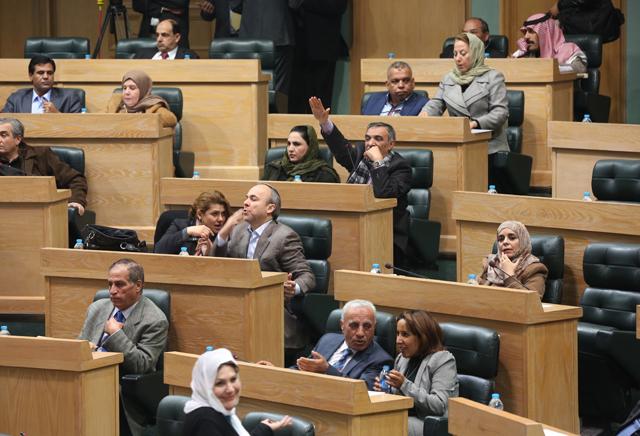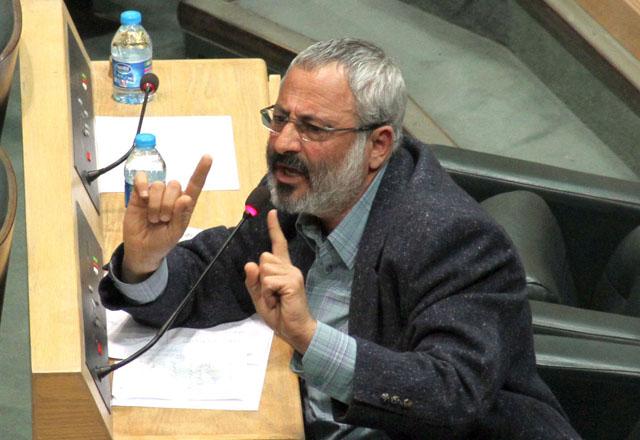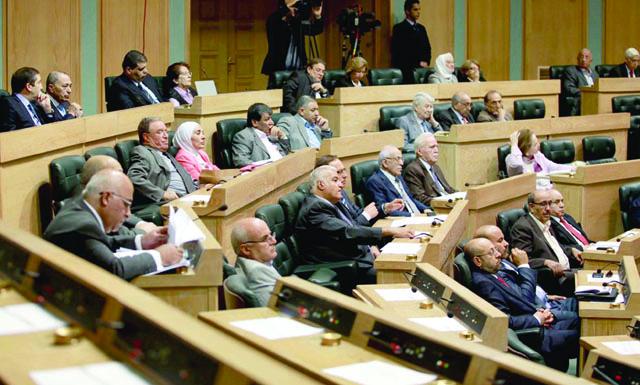AMMAN — Several MPs criticised the government on Tuesday for its “slow response” to their questions.
At a Lower House session where ministers provided answers to 46 questions, deputies Mahmoud Kharabsheh, Mustafa Rawashdeh, Amer Bashir and Rula Hroub insisted on the need to ensure that the government take MPs’ questions seriously.
The legal duration for the government to reply to any question is eight days starting from the date its is posed, but parliamentary sources told The Jordan Times that some of the questions that the government has recently answered were asked almost a year ago.
In reply to a question by MP Mohammed Qatatsheh (Tafileh, 1st District), the government said it has 65 vehicles in use by employees at the prime minister’s office.
The MP called on the Audit Bureau to monitor the movement of these cars, noting that most of them are SUVs. He urged the government to stop using them immediately to save fuel expenses.
Also during the session, Deputy Wafaa Bani Mustafa (Jerash, 1st District) defended the House-based “Mubadara” (initiative) group.
“I really don’t know why people are fighting it,” she said.
The Mubadara group has engaged with the government in efforts to find solutions to deep-rooted problems, including human rights and education.
MP Hind Fayez (Central Badia) wondered why the Lower House referred the initiative’s leader, Deputy Mustafa Hamarneh (Madaba, 1st District), alone to the House’s disciplinary committee after a verbal altercation with MP Abdul Karim Dughmi (Mafraq, 1st District) over remarks on the role of tribalism in the country.
On Monday, Dughmi criticised Hamarneh for ideas he discussed during a recent lecture, warning that tribes might evolve into “unarmed militias” if no proper political environment is created for political activism based on platforms.
In the same session, Dughmi accused Hamarneh of humiliating tribes and when the discussion evolved into a heated argument, he charged that the Madaba deputy is a “collaborator with the Americans”.
In his response to Dughmi’s allegations, the Mubadara leader explained that he believes building a civil and modern state should be based on citizenship rather than any other affiliation.
On Tuesday, Lower House Speaker Atef Tarawneh refused to discuss the altercation and told Fayez the “decision has been already taken” in the matter.
Mubadara, which has attracted over 20 House members, has agreed with the government to grant husbands and children of Jordanian women married to non-Jordanians full civil rights. The move triggered criticism among tribal figures and other critics, who charged that it constitutes a prelude to settling Palestinian refugees permanently in Jordan.
According to members of Mubadara, the initiative represents “new blood and a new reality” in Parliament, where the old guard with established interests resists modernists.
They noted that they already have achieved progress, having developed novel, result-oriented tools to interact with governments as legislators.
For the past months, Hamarneh has been leading his group seeking to partner with the government and pave the way for a shadow government, a novel practice in the county’s parliamentary history.














